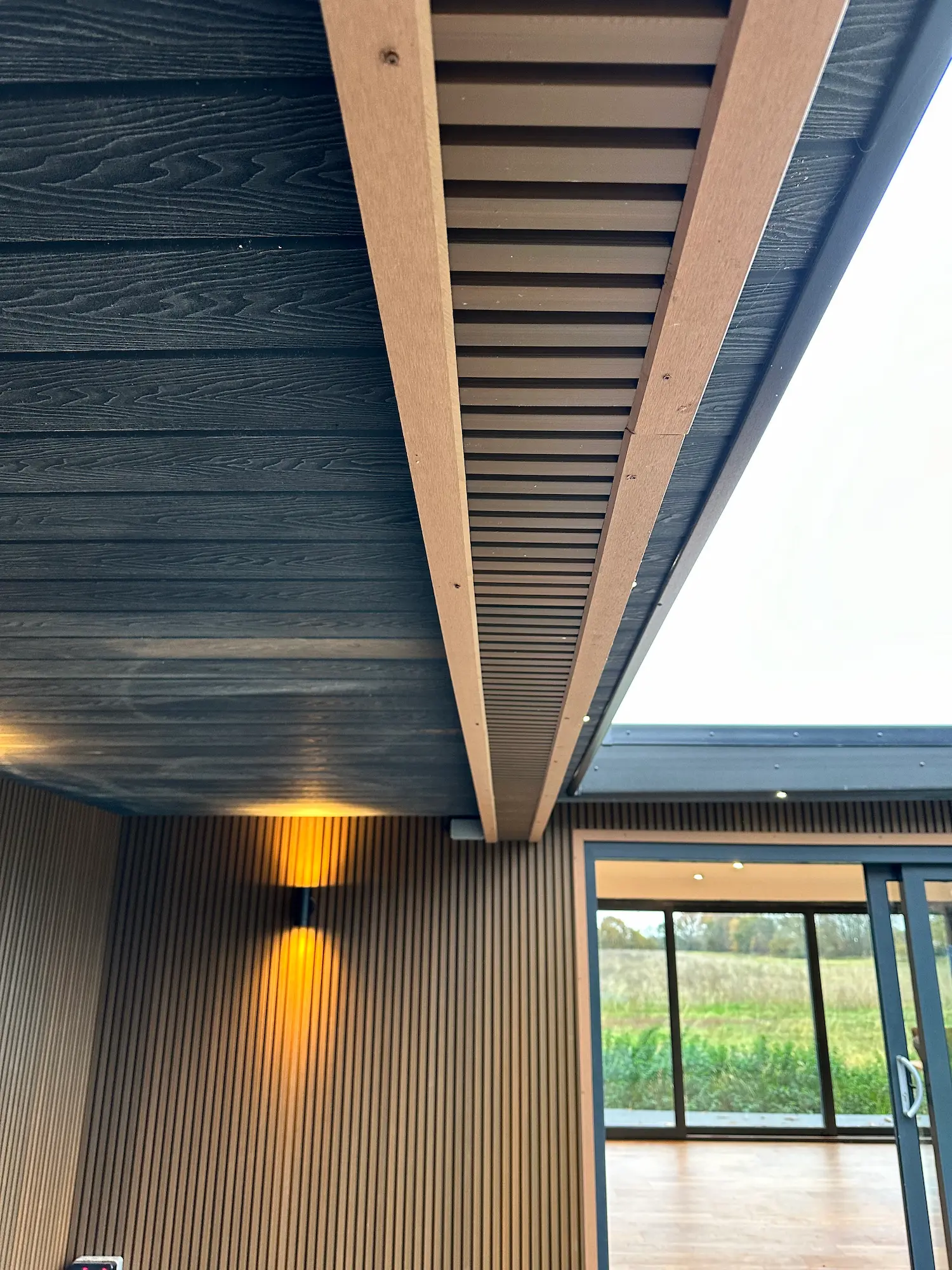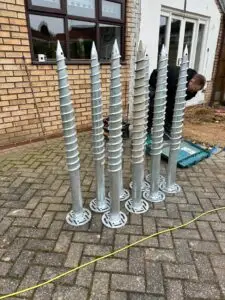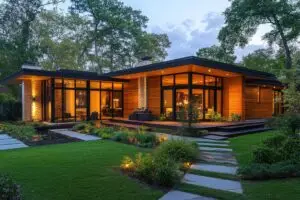Introduction
In recent years, the use of composite cladding in garden room projects has surged in popularity. Homeowners and designers are increasingly opting for this innovative material to create beautiful, durable outdoor spaces. But what exactly is composite cladding, and how does it compare to traditional natural wood? This blog will explore the benefits of composite, highlight its differences from natural wood, and discuss whether natural wood has become outdated in the world of garden room construction.
What is Composite Cladding?
Composite cladding is an artificial building material, typically created from a blend of wood fibers, plastic, and bonding agents. This combination results in a highly durable, low-maintenance product that mimics the appearance of natural wood. Unlike traditional timber, composite cladding is engineered to withstand the elements and resist common issues such as rot, warping, and insect damage.
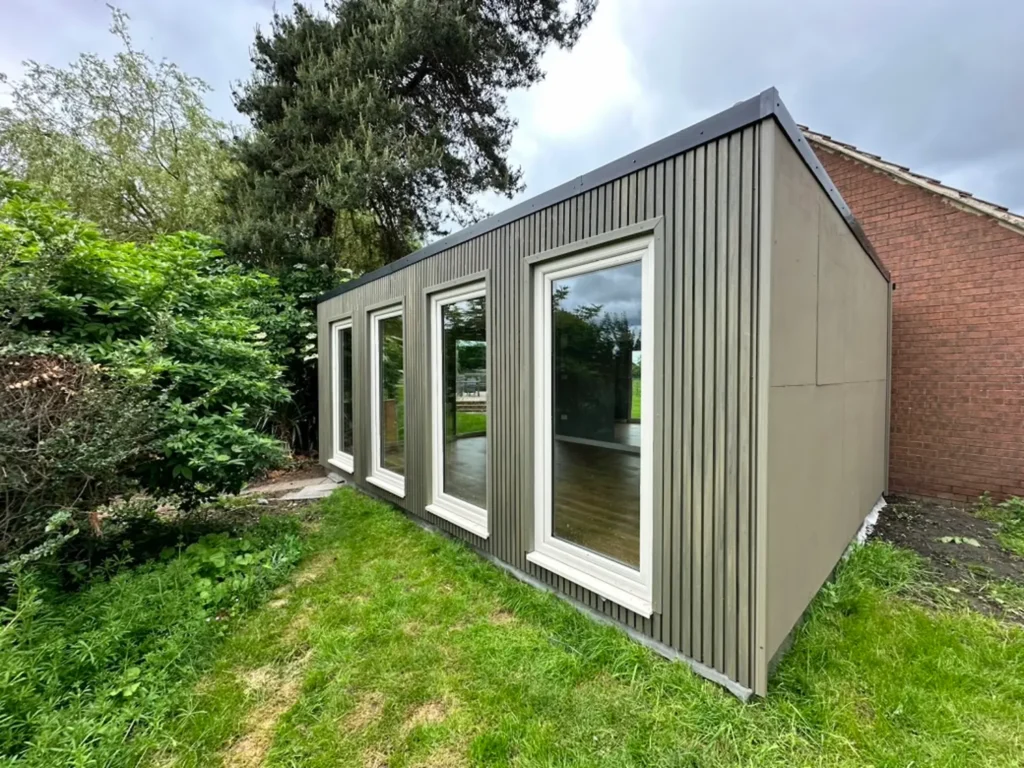
There are a number of companies that supply composite cladding in the UK and the price can vary significantly depending on the quality and design that the customer wants.
As the Managing Director of Heritage Garden Studios, I am always on the lookout for the best materials to recommend to our clients. One of our trusted suppliers is Millboard, a company that truly stands out in the world of composite cladding.
At Millboard, they are more than just a company; they are a passionate community of innovators, designers, and sustainability advocates dedicated to transforming outdoor living. Their mission is to create outdoor spaces that are not only functional but also extraordinary.
Millboard envisions a world where outdoor environments are living canvases, harmonising form and function. They empower individuals and professionals to design outdoor spaces that stand the test of time and enhance quality of life.
Innovation is at the core of what Millboard does. As pioneers in outdoor living technology, they continually push the boundaries of what’s possible. Their composite cladding combines the warmth and aesthetics of wood with the durability and resilience of modern materials, resulting in a product that is not only beautiful but built to last.
Including Millboard as a supplier in your garden room project ensures you benefit from their cutting-edge, sustainable, and aesthetically pleasing materials. With Millboard, you can trust that your outdoor space will be both stunning and enduring. Millboard
Differences Between Composite Cladding and Natural Wood
- Durability: Natural wood, while aesthetically pleasing, is susceptible to weathering, rot, and insect damage. Conversely, composite cladding is designed to be highly resistant to these issues, making it a more durable choice for outdoor applications.
- Maintenance: Wood requires regular maintenance, including staining, sealing, and sometimes even replacing damaged boards. Composite cladding requires minimal upkeep, usually just a periodic wash to keep it looking fresh.
- Aesthetic Appeal: While natural wood offers a unique, organic beauty that many homeowners love, composite cladding has come a long way in replicating the look and feel of wood. Advances in technology have made it possible to achieve a variety of finishes and textures, making it hard to distinguish from real wood at first glance.
- Environmental Impact: Many composite cladding products are made from recycled materials, making them a more sustainable option compared to natural wood, which requires the harvesting of trees.
Benefits of Composite Cladding
- Longevity: Composite cladding can last significantly longer than natural wood, often with warranties of up to 25 years. This longevity makes it a cost-effective choice in the long run.
- Low Maintenance: As mentioned, composite cladding requires very little maintenance, saving homeowners time and money on upkeep.
- Weather Resistance: Composite materials are designed to withstand extreme weather conditions, from heavy rain and snow to intense sunlight, without deteriorating.
- Pest Resistance: Unlike wood, composite cladding is impervious to termites and other pests that can cause significant damage.
- Consistent Quality: Natural wood can vary in quality and appearance, but composite cladding offers consistent colour and texture throughout.
Has Natural Wood Had Its Day?
While composite cladding offers numerous advantages, it doesn’t necessarily mean the end for natural wood. There is still a significant market for high-quality timber, particularly among those who value its natural beauty and authenticity. Additionally, some homeowners prefer the traditional appeal of wood and are willing to invest in its upkeep.
However, for those seeking a practical, long-lasting, and environmentally friendly option, composite cladding is becoming the go-to choice. Its blend of durability, low maintenance, and aesthetic versatility makes it an ideal material for modern garden rooms.
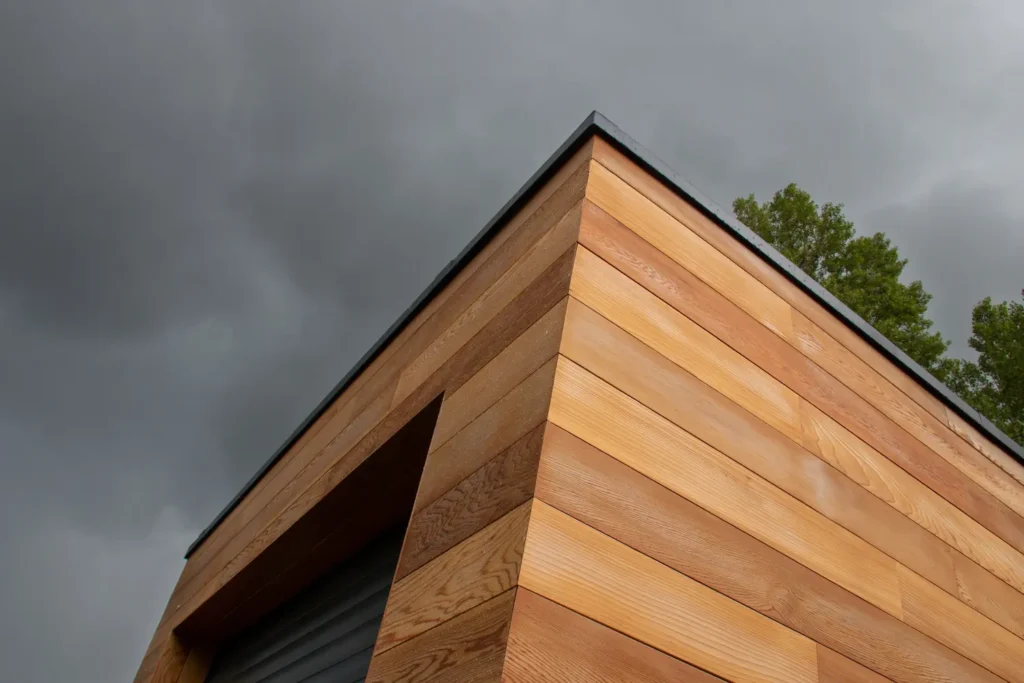
Conclusion
The increasing popularity of composite in garden room projects is a testament to its numerous benefits over traditional natural wood. With its superior durability, minimal maintenance, and environmental advantages, composite cladding is an excellent choice for those looking to enhance their outdoor living spaces. Whether you are constructing a garden office, gym, or simply a relaxing retreat, composite offers a practical and attractive solution that will stand the test of time.
As the Managing Director of Heritage Garden Studios, I have seen firsthand the transformative impact that composite cladding can have on garden room projects. Its rising popularity is no surprise given its many advantages. For those considering a new garden room, exploring the benefits of composite cladding could be the key to creating a beautiful, long-lasting space.
About the Author
Sarah Barlow is an authority on garden room construction and the Managing Director of Heritage Garden Studios. With a passion for design and years of experience in the industry, Sarah brings her expertise to every project, creating exceptional outdoor spaces that enhance the beauty and functionality of homes.

